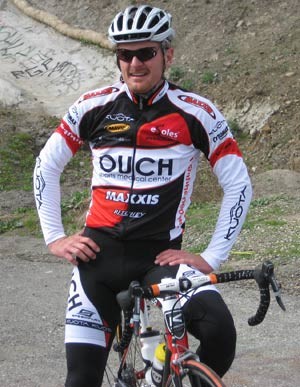Former rider deemed guilty of involvement in hacking of doping laboratory
 Floyd Landis has been handed a twelve months suspended prison sentence by a court in Nanterre, France, in relation to the hacking of a French anti-doping laboratory in 2006.
Floyd Landis has been handed a twelve months suspended prison sentence by a court in Nanterre, France, in relation to the hacking of a French anti-doping laboratory in 2006.
The WADA-accredited lab of Chatenay-Malabry near Paris was involved in testing samples from that year’s Tour de France. Landis, who received the yellow jersey on the Champs Elysées after a dramatic comeback, tested positive for high levels of testosterone and was eventually stripped of the title and given a two year ban.
Information from the laboratory tests was used during presentations held in the US to raise money for their defence and also on a website, with the details casting doubt on the procedures in the laboratory.
Prosecutors said that Landis and his coach Arnie Baker were involved in a plot to hack into the lab’s computer system. He denies the claims, saying that the information was posted to him anonymously. Landis did not travel to Europe for the hearing and was therefore tried in absentia, which is forbidden in several countries including under the US Constitution, but permitted in France.
On October 24th the French state prosecutor called for the Tribunel Correctionel criminal court to hand the duo suspended prison sentences totalling 18 months. While another individual carried out the actual hacking, the prosecutor argued that Landis and Baker used information that they knew had been stolen.
Baker was accused of having asked the consulting firm Kargus Consultants to break into the computer systems and to gain access to private documents. The hacker Alain Quiros, the alleged intermediary Jean-Francois Dominguez, a former paratrooper, and Thierry Lorho, who used to be an agent with the spy agency DGSE, were also on trial.
Quiros was given a six-month prison sentence plus a fine of €4,000 Quiros, who admitted hacking into the lab. He was also convicted of hacking into the computers of the environmental lobby group Greenpeace, with the intrusion being done on behalf of employees of the French power company Electricité de France SA (EdF). The state-controlled power company was fined €1.5 million.
Landis cracked dramatically while leading the 2006 Tour, losing over eight minutes to Carlos Sastre (CSC) and Oscar Pereiro (Caisse d’Epargne). The latter took over the yellow jersey. However Landis fought back the following day with an audacious early move which remained clear all the way to the finish, despite a frenzied chase behind.
He crossed the line in Morzine five minutes 42 seconds ahead of Sastre, who was the best of the GC challengers. The-then Phonak rider gained seven minutes and eight seconds over Pereiro, moving close enough to be able to recapture the jersey in the final time trial.
His triumph didn’t last long; four days after his triumphant ride into Paris, it was announced that he had tested positive for testosterone. This set off a lengthy fight to try to clear his name, with Landis and Baker using documents with surprising insight into the inner workings of the LNDD.
Landis was ultimately unsuccessful in fighting doping charges, and last year admitted to having used performance-enhancing substances for much of his career. He implicated Lance Armstrong and a number of former team-mates on the US Postal Service team. The claims were later echoed by several other former USPS riders, including Tyler Hamilton.
These statements added momentum to a federal investigation which is believed to be still ongoing.
Landis recently denied involvement in the hacking, saying that he was not tech savvy and the claims were false.